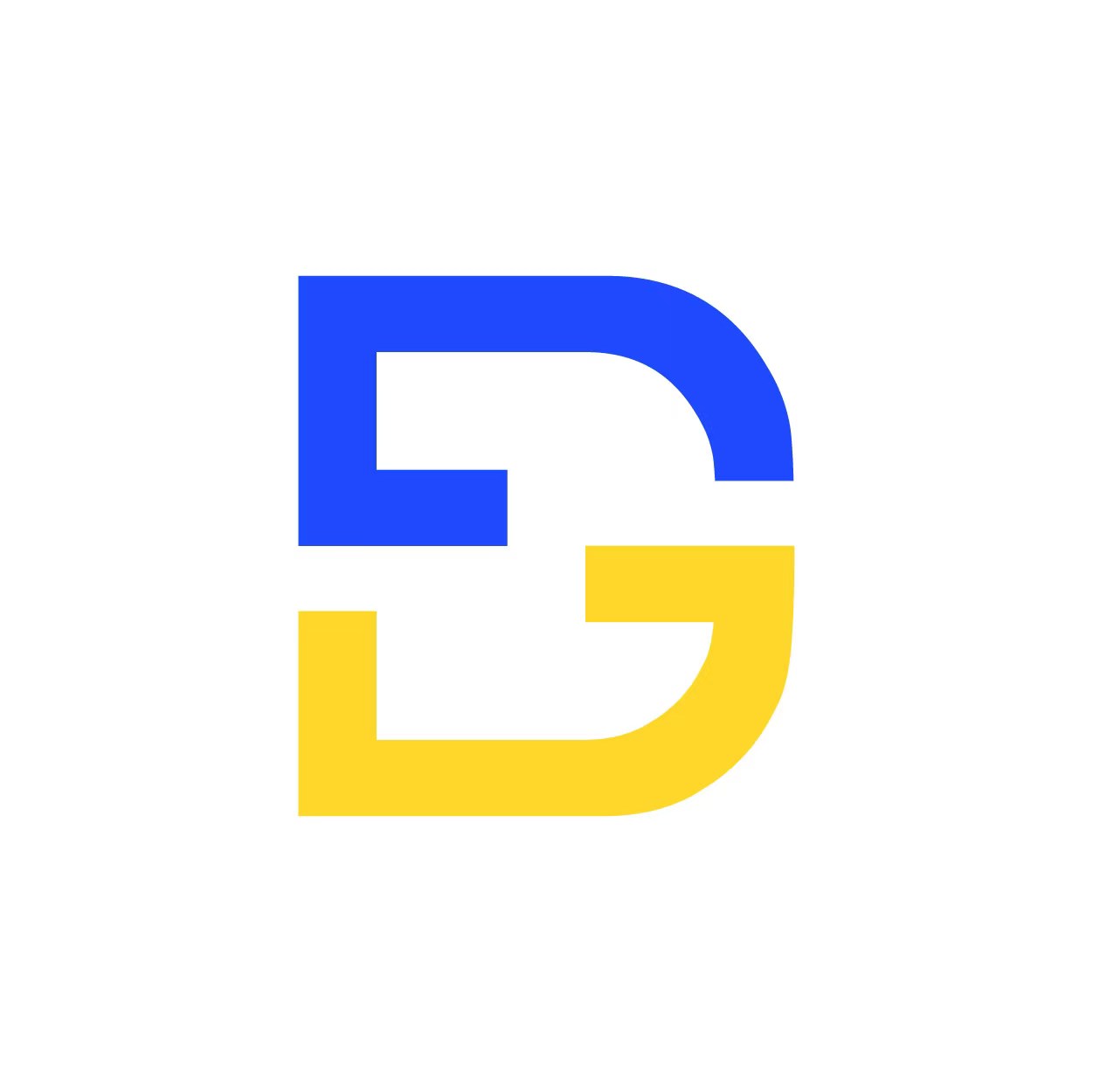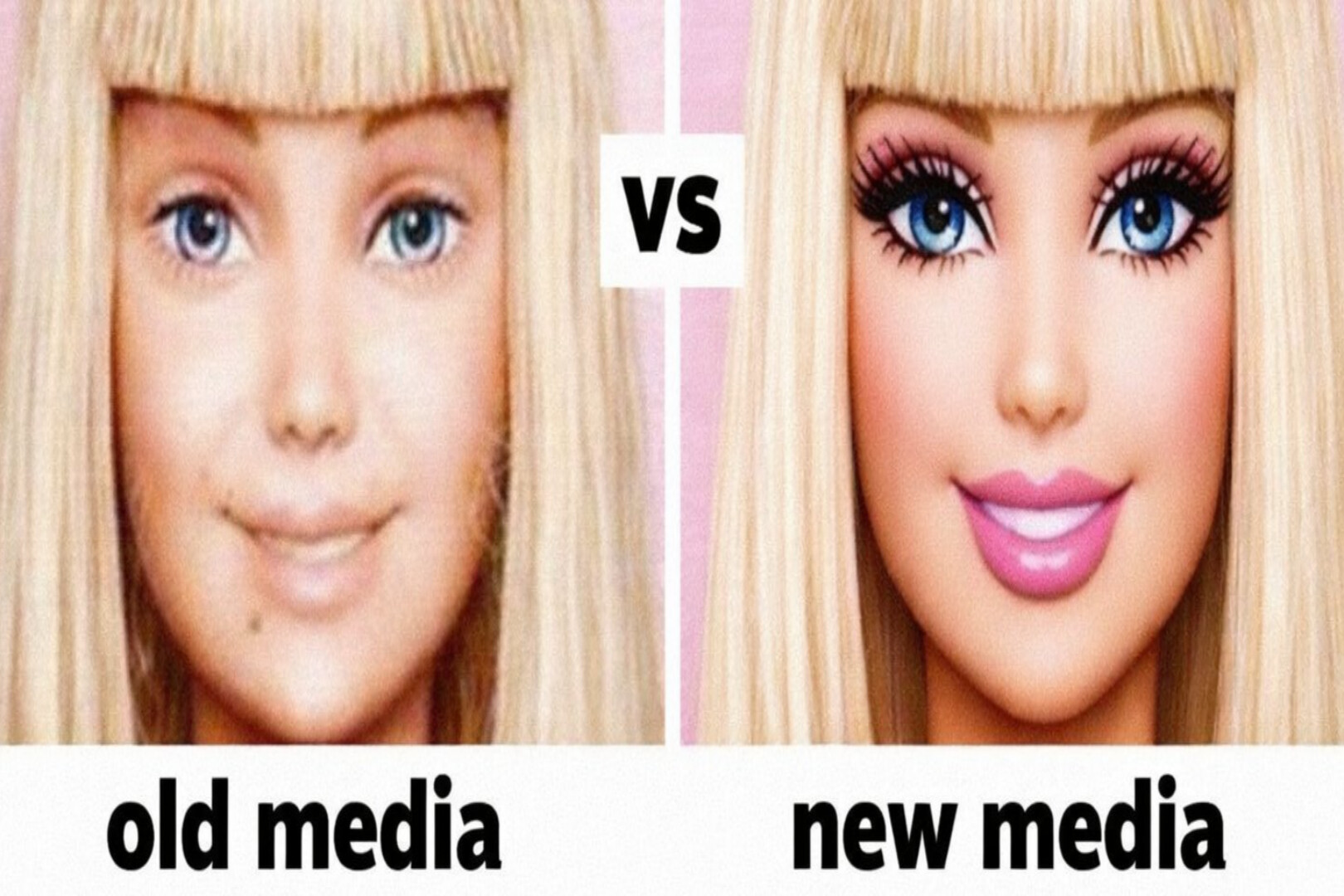DFG's WebX and KBW 2025 Review and Insights: Japan and South Korea Converge in Vision, but Divergent in Strategies
- 核心观点:日韩Web3发展路径差异互补。
- 关键要素:
- 日本AI应用重基础设施与合规。
- 韩国AI应用重实验性与市场表现。
- 日本稳定币侧重机构,韩国侧重散户。
- 市场影响:推动亚洲Web3生态多元化发展。
- 时效性标注:中期影响。
Original author: James Wo, Founder and CEO of DFG
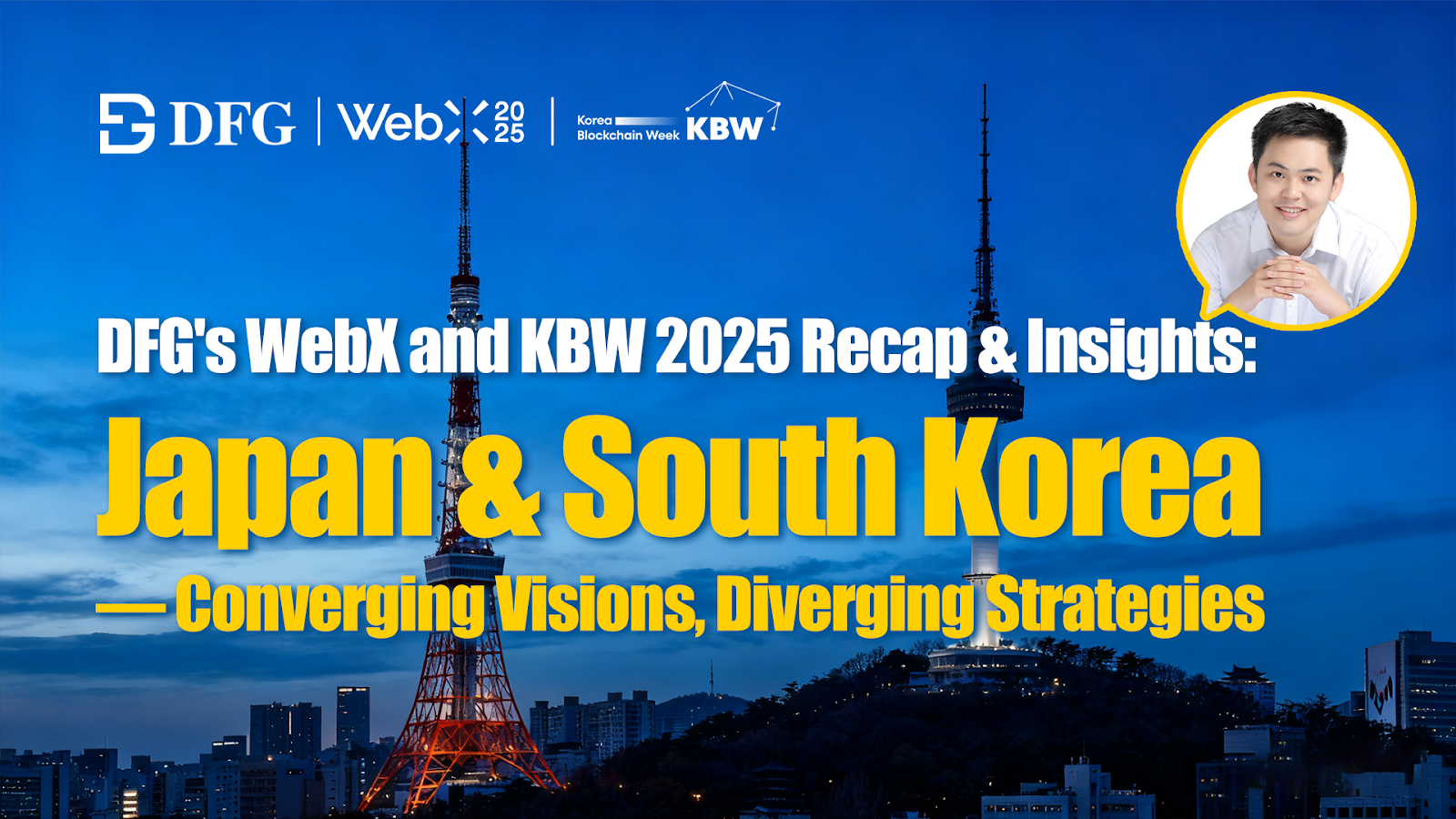
The past few months have been a stellar period for the Asian digital asset ecosystem, culminating in the launch of two of its most influential events: WebX 2025 in Tokyo and Korea Blockchain Week 2025 in Seoul. Both conferences attracted a broad global audience of investors, developers, regulators, and innovators, signaling the growing maturity and influence of the Asian market in shaping the next wave of Web3. As a sponsor of WebX and host of our summit during KBW, DFG had the opportunity to engage in in-depth discussions with local founders, policy leaders, and ecosystem partners. These conversations revealed fascinating similarities and stark contrasts between Japan and South Korea, two of Asia's most dynamic and forward-thinking crypto economies.
Japan and South Korea: Comparison and Integration of Web3
AI and blockchain
At WebX 2025 in Tokyo and KBW 2025 in Seoul, the convergence of AI and blockchain was more than just a theme; it was a strategic frontier shaping the next wave of innovation. However, the two markets approached this issue from vastly different perspectives, reflecting their respective countries' tech DNA. Discussions in Japan centered around pragmatic and scalable integration: how AI can enhance blockchain infrastructure, automate regulatory compliance, and streamline user onboarding for DeFi and enterprise applications. This approach aligns closely with that of several companies in the DFG portfolio, such as Render Network and Gensyn, which are building at the intersection of AI and decentralized computing. The tone of these companies is thoughtful and methodical, rooted in Japan's culture of precision, data integrity, and ethical deployment. Meanwhile, in South Korea, the energy is decidedly experimental. Builders and funds are openly exploring AI-driven DeFi strategies, algorithmic trading agents, and quantum-resistant protocols. AI is portrayed not just as a supporting tool but as a competitive advantage in an increasingly fragmented market. The contrast is stark: Japan views AI as infrastructure for improving blockchain usability and governance, while South Korea sees it as a catalyst for enhancing market performance and global competitiveness. Japan's AI and blockchain landscape favors long-term, infrastructure-focused investments. In contrast, South Korea provides fertile ground for rapid, high-return experimentation.
Stablecoins and RWAs
Stablecoins and RWAs dominated both events, but the contrast in their approaches was clear. At WebX, Japan's approach was influenced by institutional discipline and financial pragmatism. Discussions focused on how tokenization could reduce financing costs and democratize access to corporate debt and SME financing—for example, Ant Group tokenized $8.4 billion worth of Chinese energy assets on its blockchain to reduce costs and speed up funding. Japanese regulators and banks are methodically piloting yen-backed stablecoins, emphasizing transparent audits, interbank interoperability, and regulatory compliance. As an early investor in Circle, we look forward to watching the evolution and wider adoption of yen-backed stablecoins within the Japanese financial ecosystem. However, in South Korea, the narrative is faster-paced, more fluid, and more entrepreneurial. The KBW conference explored tokenized real estate, transportation, and supply chain assets, focusing on secondary market trading and cross-border liquidity. Similarly, our portfolio company, Plume Network, is advancing this vision by tokenizing assets such as real estate, credit, and commodities, creating a secure and compliant environment for their use in on-chain financial activities. South Korea has explored a scalable ecosystem to enable global retail access and leverage crypto-friendly tax rules to attract liquidity. By 2025, this environment has driven a significant increase in perp DEX adoption, as Korean investors increasingly turn to decentralized exchanges that offer frictionless onboarding, self-custody, and faster token listings. If the Japanese model prioritizes trust, compliance, and institutional scale, the Korean model emphasizes accessibility, experimentation, and speed. This duality is crucial: Japan is becoming Asia's compliant gateway for institutional-grade digital assets, while the Korean market serves as a sandbox for rapid retail adoption and cutting-edge innovation. This dynamic tension is driving complementary growth in the region.
Regulation and government stance
Regulatory differences between Japan and South Korea continue to define their competitive positioning in the global cryptocurrency landscape. Japan pursues a rigorous, rules-based system designed to foster responsible innovation and institutional confidence. WebX highlighted the close collaboration between Japan's Financial Services Agency (FSA) and the private sector, and emphasized Japan's forward-looking yet conservative strategy, centered on a digital yen pilot program, a clear licensing system, and cross-border regulatory coordination with the EU and Hong Kong. This framework provides predictability and long-term security for investors. South Korea, on the other hand, thrives on regulatory flexibility. KBW's discussion revealed how South Korea's delayed cryptocurrency taxation and relatively light-touch regulations have spurred the development of one of the world's most vibrant trading ecosystems. Policymakers are currently navigating the balance between innovation and regulation, particularly amid ongoing dialogue with their US counterparts on strengthening cross-border compliance. Japan's policy clarity is well-suited to infrastructure and institutional investment, while South Korea's volatile environment favors agility, growth hacking, and consumer-oriented innovation. This contrast highlights Asia's evolving dual narrative: Japan builds the rails of trust, while South Korea fuels market momentum.
DFG activities
At WebX 2025
As a gold sponsor of WebX 2025, DFG had the opportunity to share a booth with Tevau and engage with numerous local participants. Through presentations and judging sessions, we gained a deeper understanding of the Japanese Web3 landscape, particularly how established Web2 companies are developing and transitioning to the Web3 ecosystem. 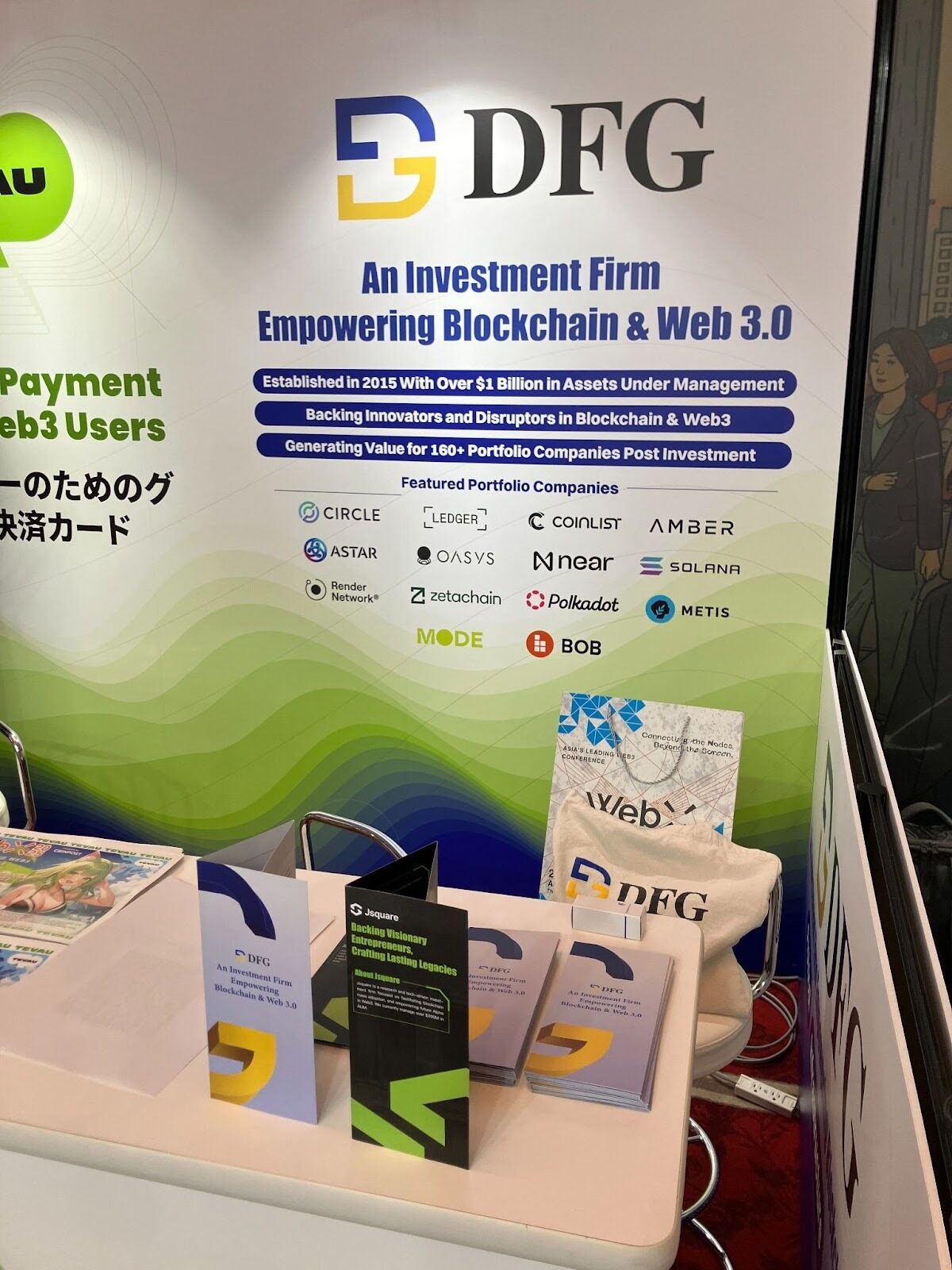
I am excited to join the WebX roundtable discussion and share our evolving investment philosophy. Recently, DFG’s focus has shifted from quantity to quality, supporting innovative infrastructure and visionary teams rather than those that replicate existing models. 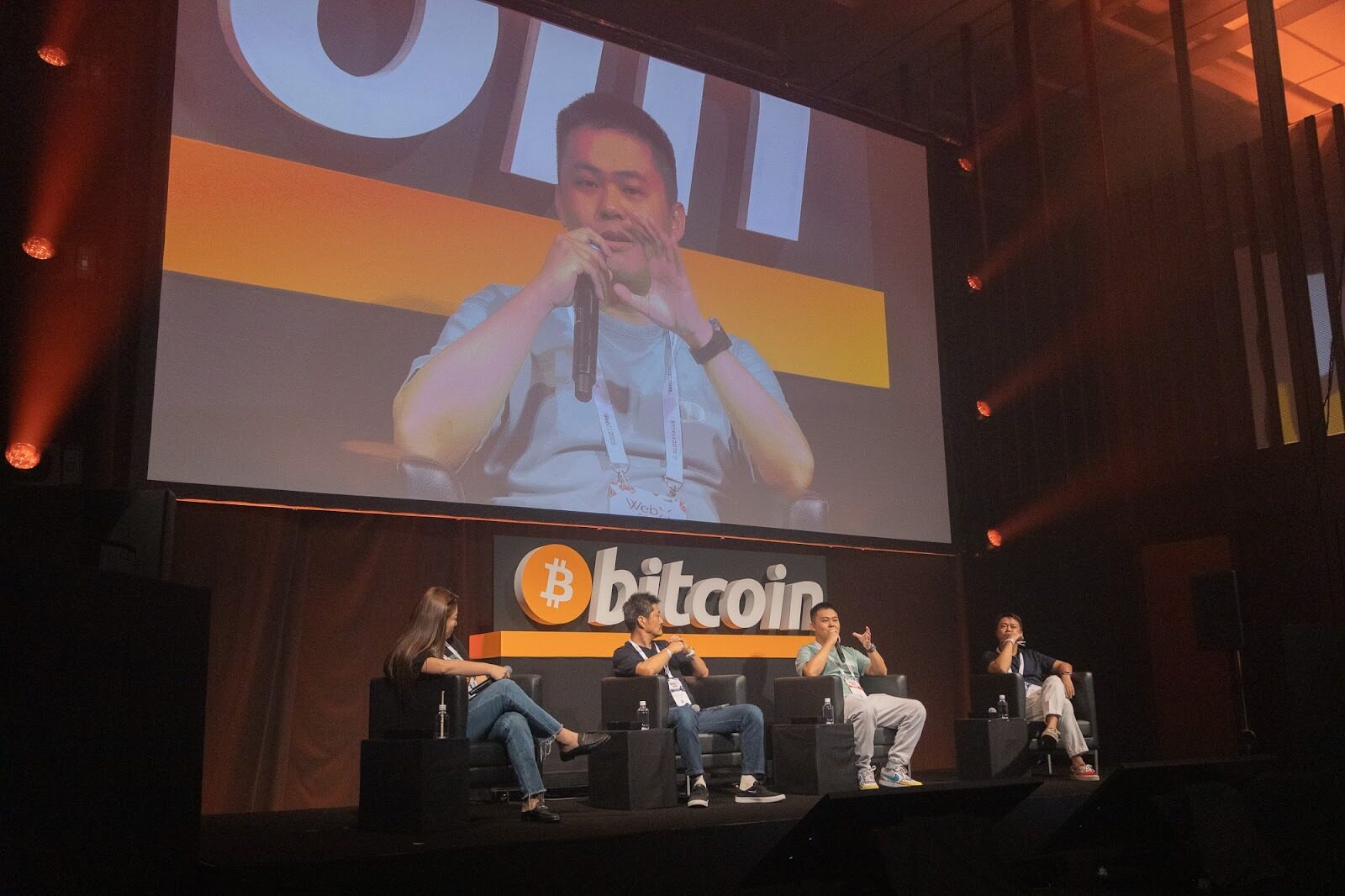
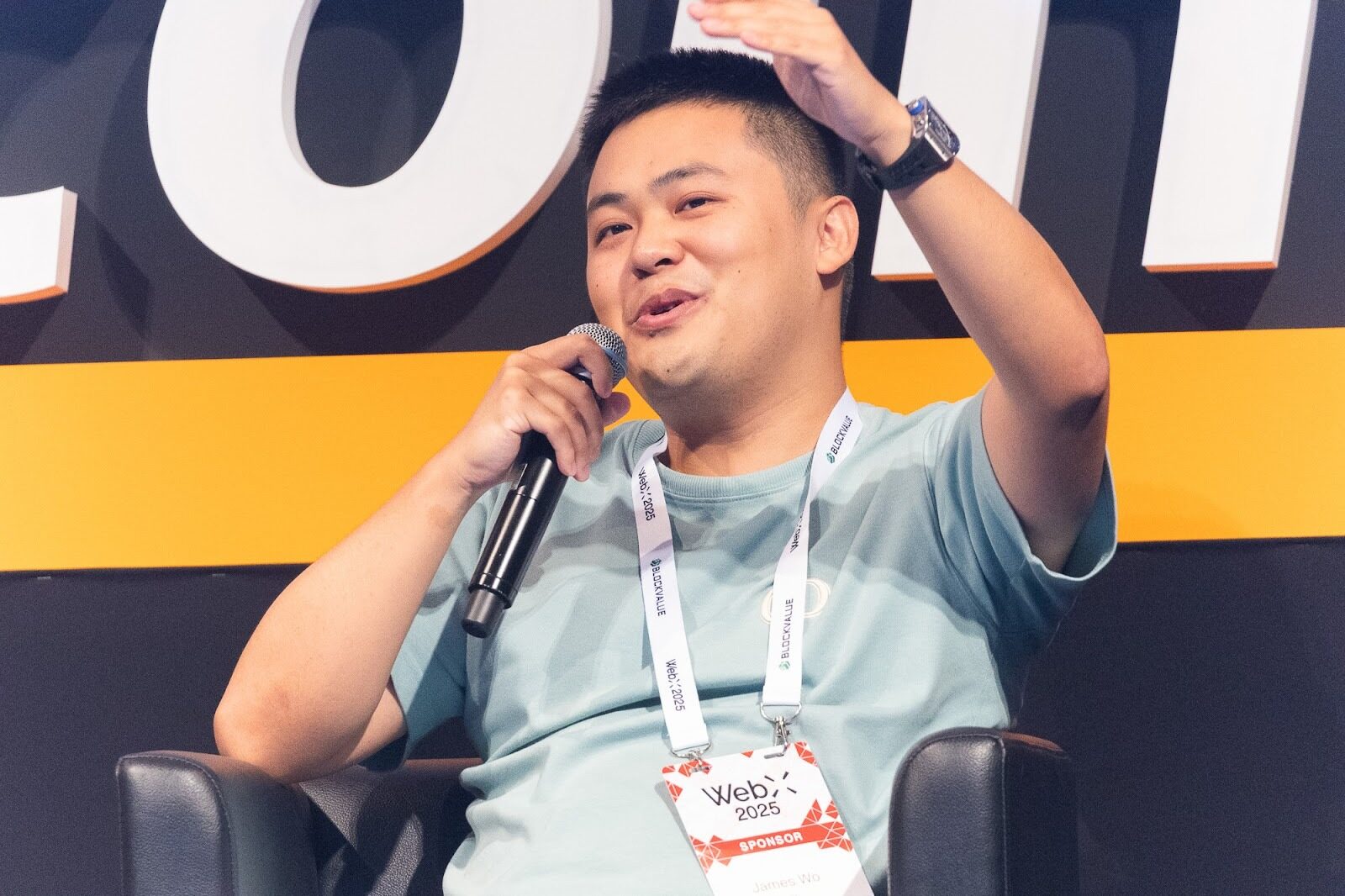 I also participated in a roundtable discussion at VC Connect, exploring how institutions can enter Web3 through tokenization, regulatory compliance, and real-world applications. DFG is committed to supporting true innovation, not blindly following trends, and paving the way for institutional adoption.
I also participated in a roundtable discussion at VC Connect, exploring how institutions can enter Web3 through tokenization, regulatory compliance, and real-world applications. DFG is committed to supporting true innovation, not blindly following trends, and paving the way for institutional adoption. 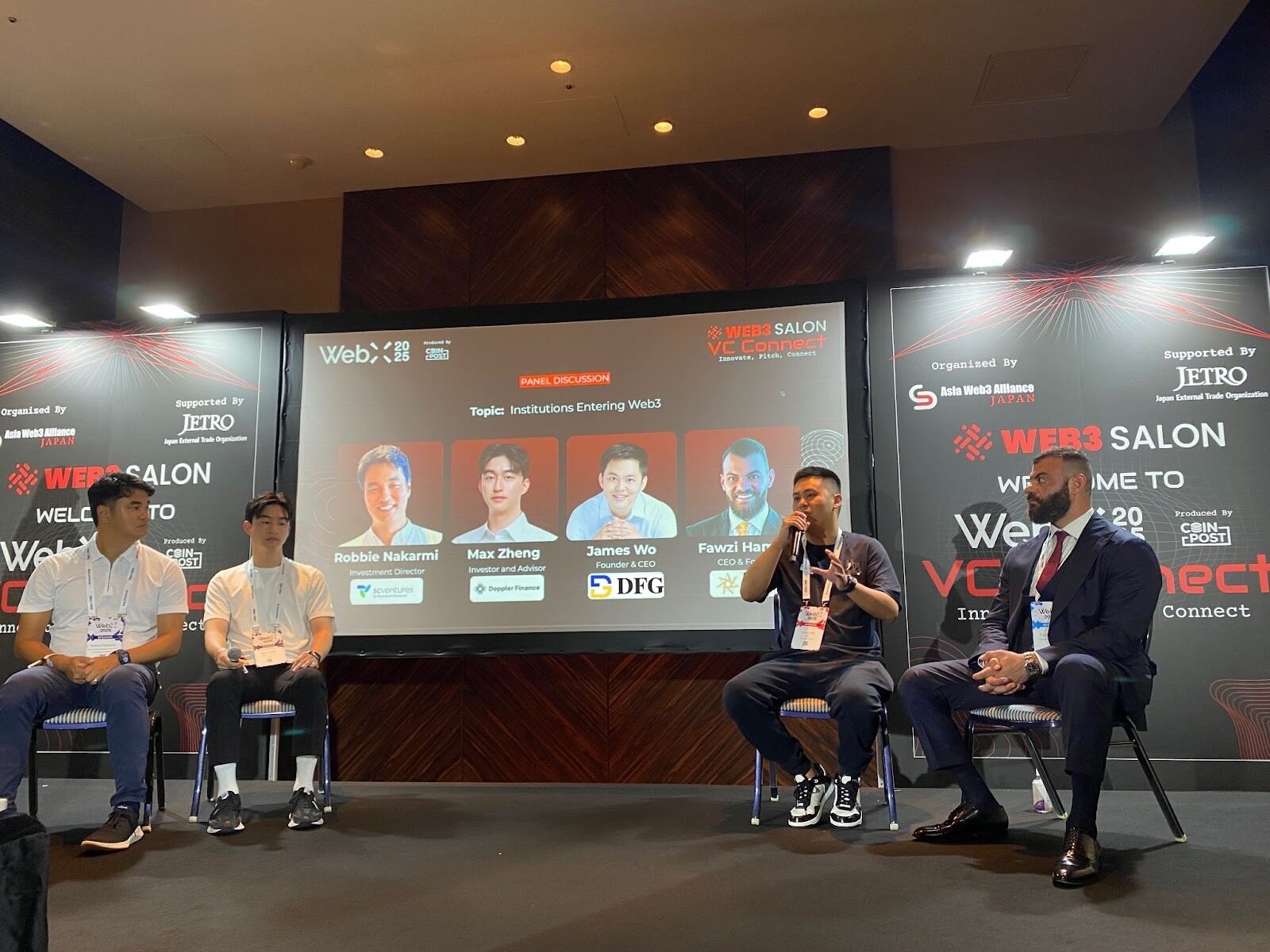
Our Head of Research, Geng Kai, participated in a pitch session at VC Connect, engaging directly with emerging Web3 startups and innovators in Japan. The pitch session provided a showcase for the next generation of builders shaping Japan’s blockchain ecosystem. 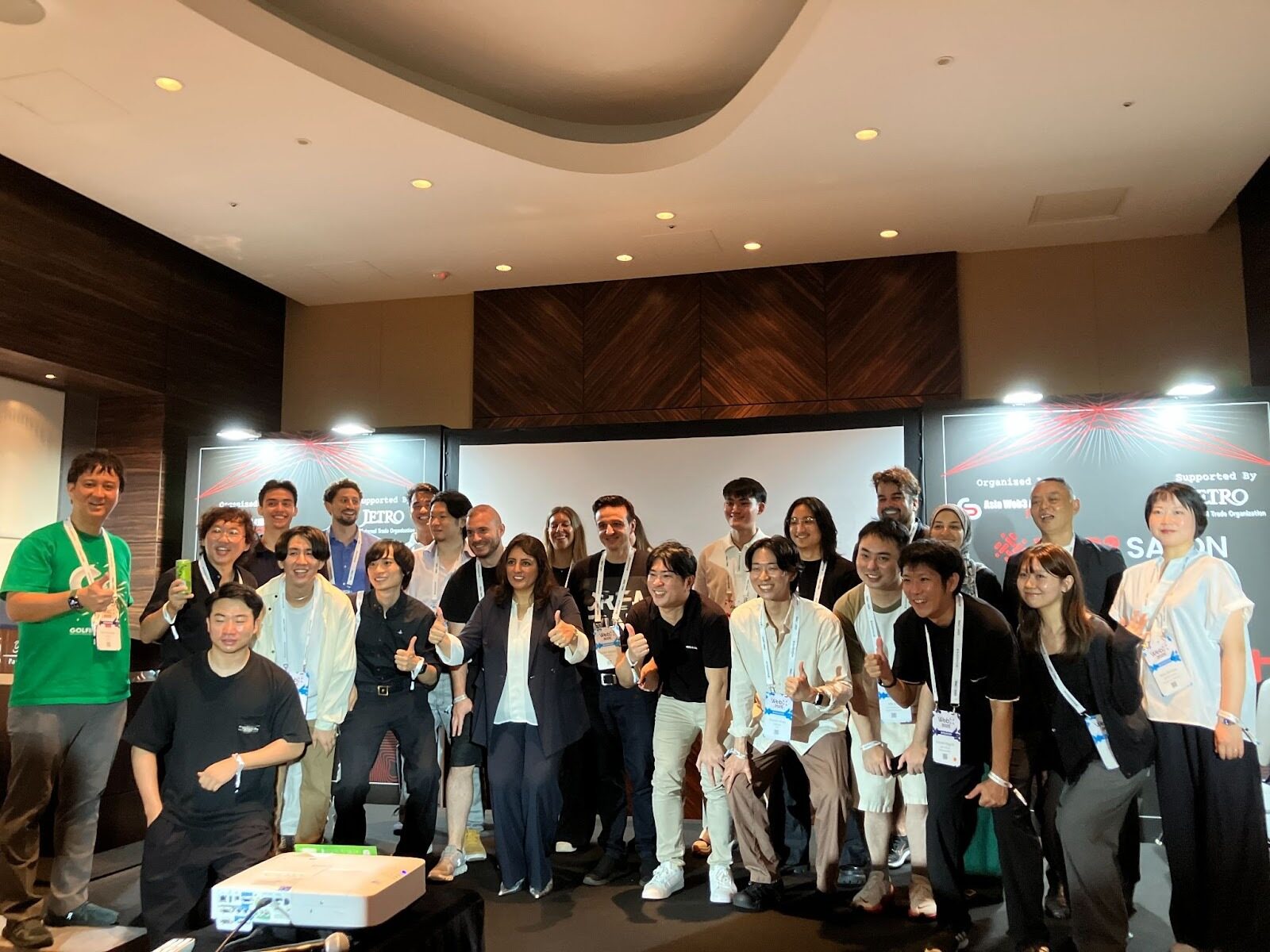
At KBW 2025
On September 22nd, DFG and Jsquare co-hosted "Bridge the Block Korea Day," a one-day summit in Seongsu during Korea Blockchain Week 2025. The event brought together leading figures from across the Web3 ecosystem, including engaging presentations from renowned speakers like Korean lawmakers, high-quality startup pitches, and interactive booths, all contributing to a vibrant and successful day of networking and collaboration. 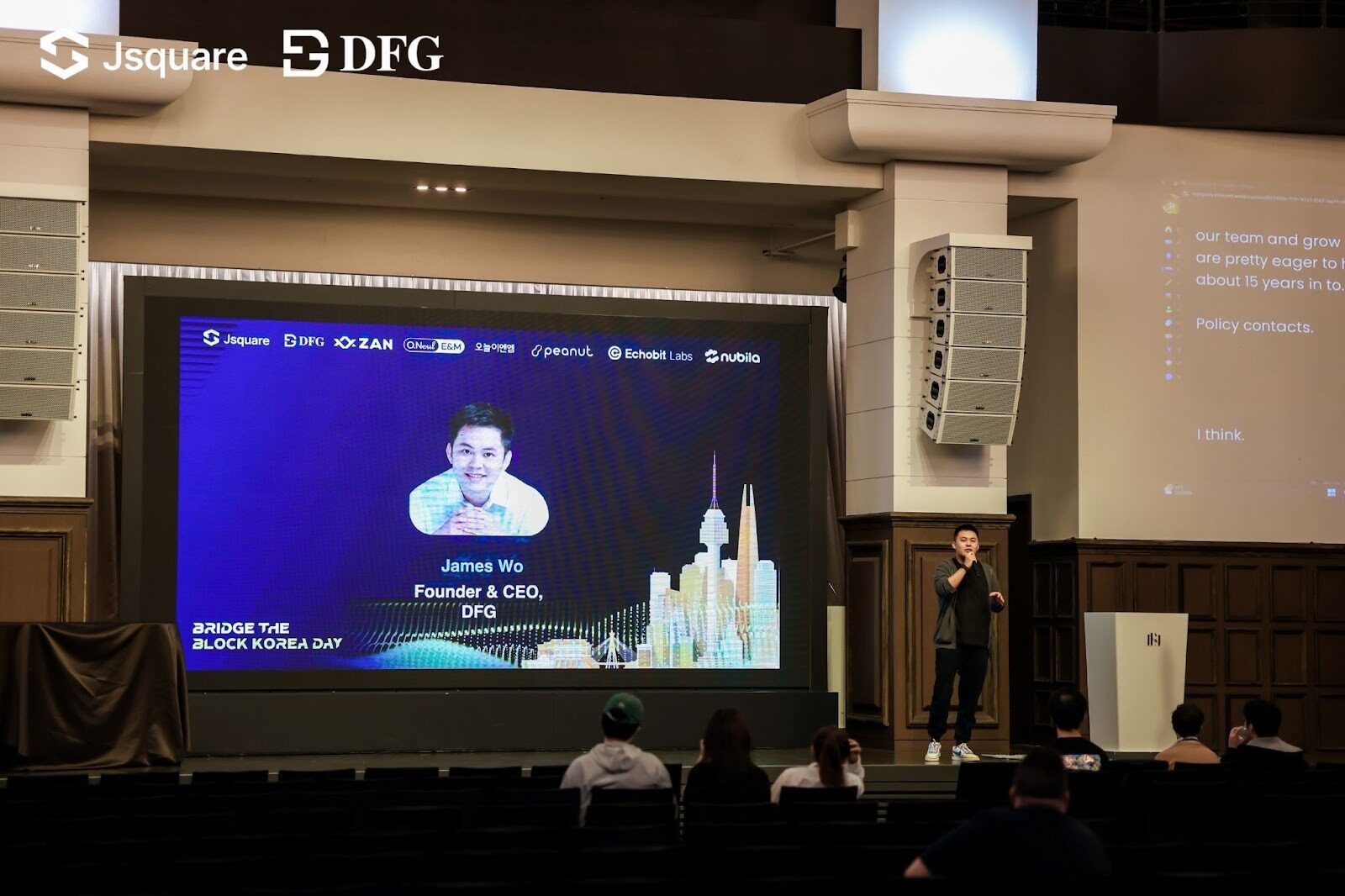
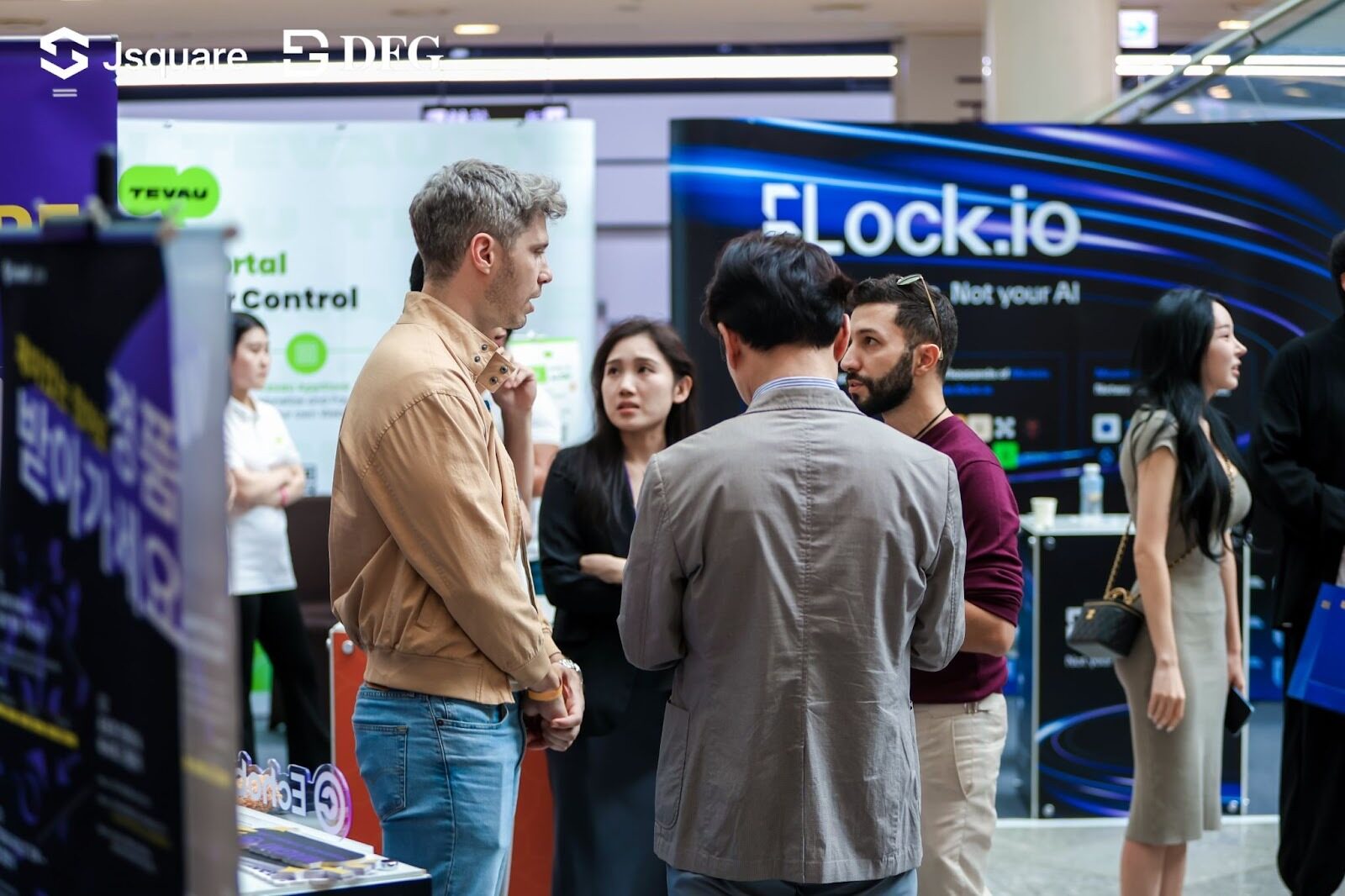
On the main stage, speakers shared their perspectives on DeFi, AI, and Decrypted Tokens (DTokens), as well as the market dynamics and macroeconomic environment shaping South Korea's blockchain ecosystem and its differences from the global market. Special guest speaker Kim Hyun-jung, a South Korean lawmaker, provided valuable insights into South Korea's evolving digital asset regulatory and policy landscape. 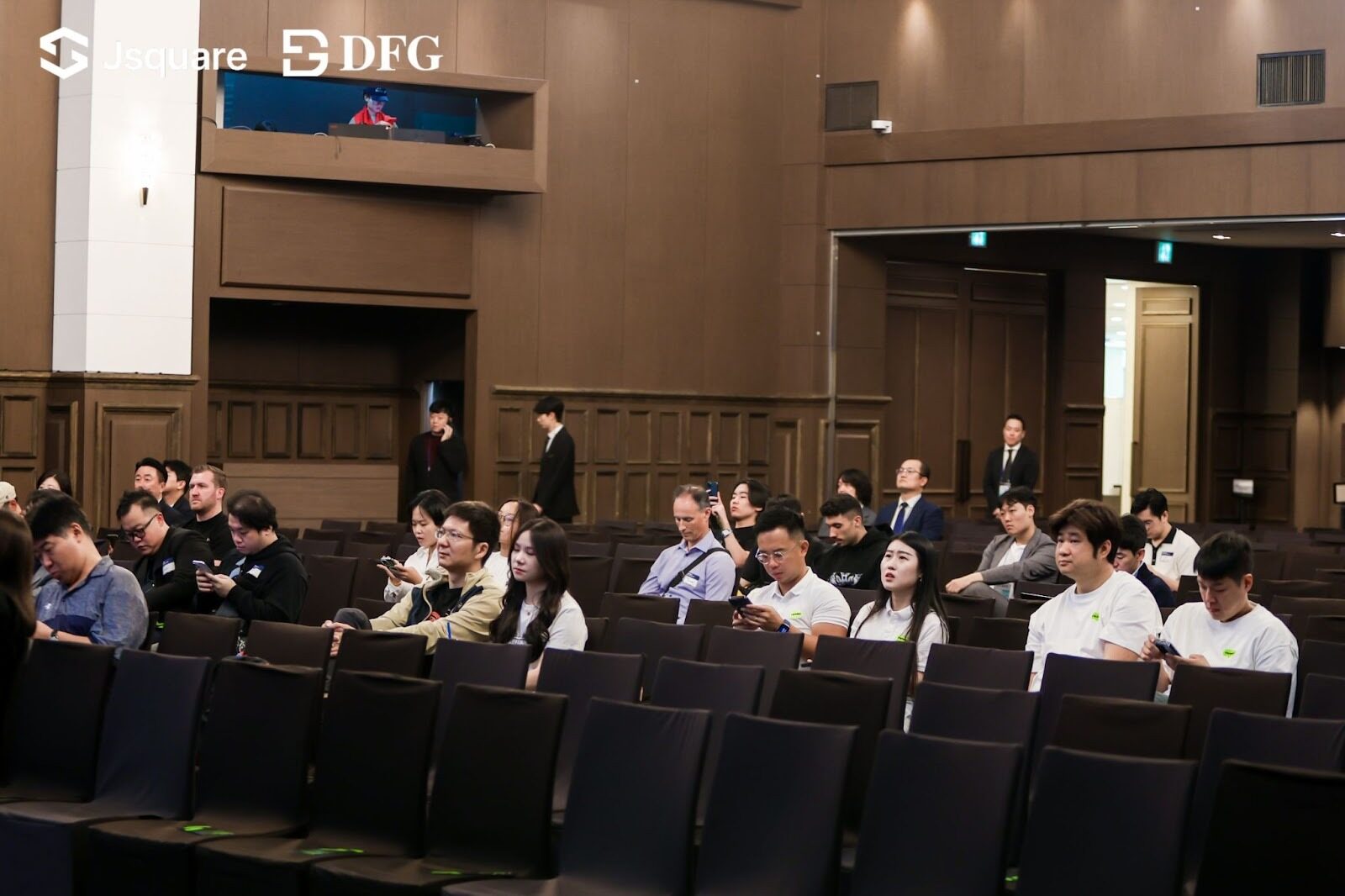
The VC Pitch Session, a sub-event co-hosted with AKINDO, brought together 10 emerging startups from diverse ecosystems. Six judges from leading venture capital firms and accelerators evaluated the pitches, asked probing questions, and ultimately selected the top three: UnifAI, BitGPT, and Avinasi. 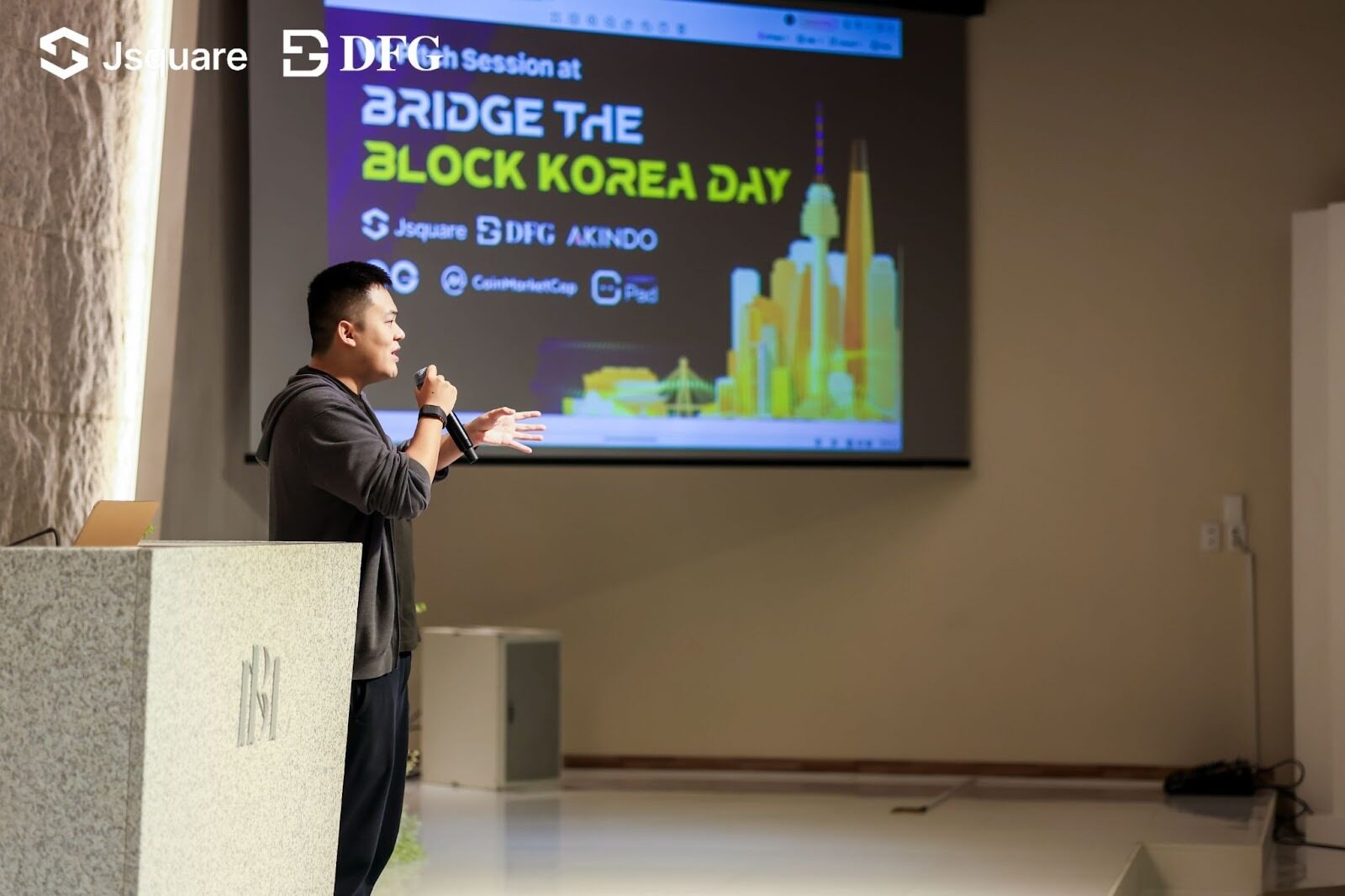
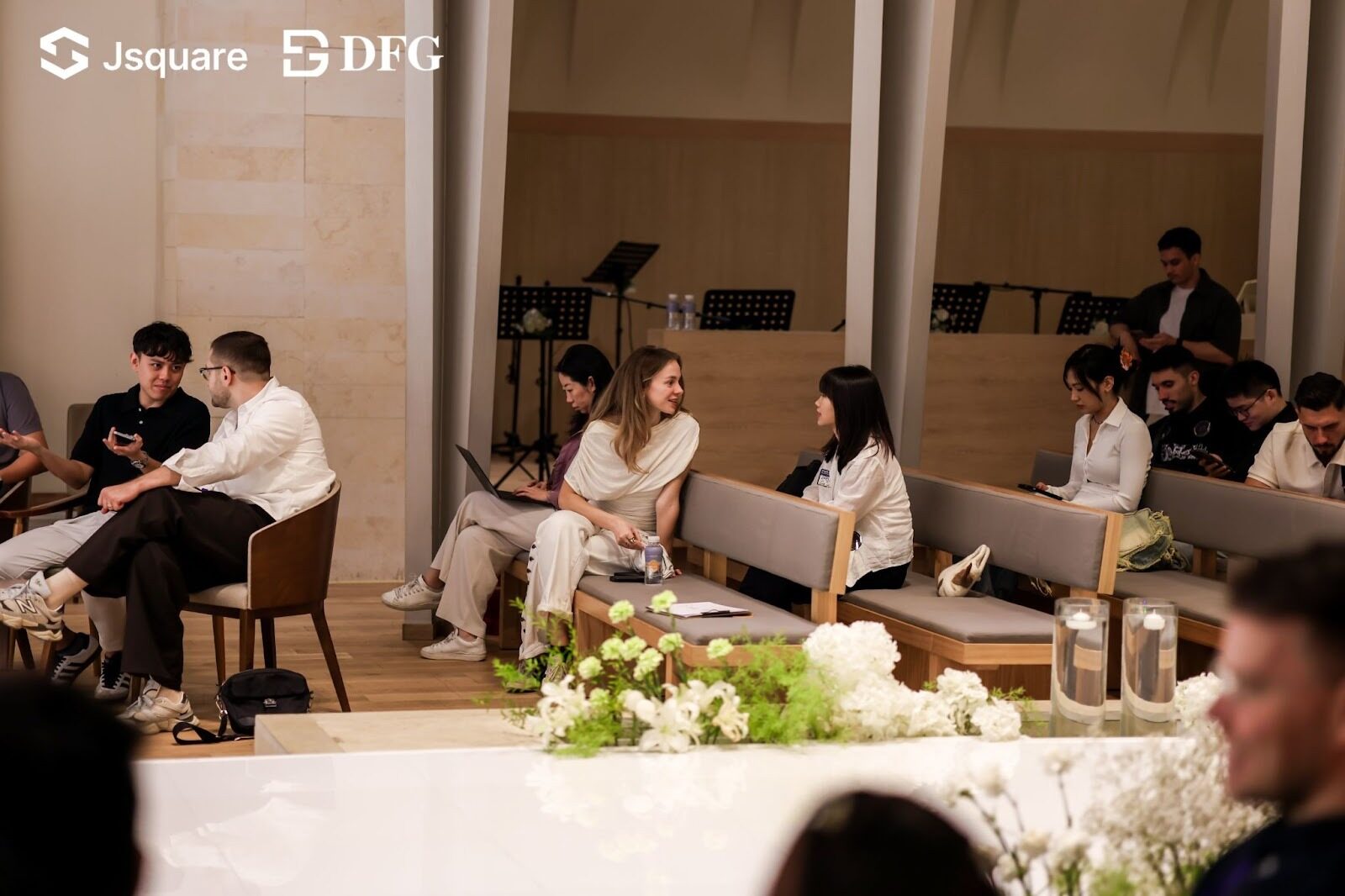
in conclusion
Both Japan and South Korea are among the most dynamic and forward-thinking Asian regions in the Web3 space. From Japan's rigorous regulation-driven innovation to South Korea's rapidly evolving culture of experimentation, each market offers unique advantages that are collectively shaping the next wave of blockchain growth in the region. The energy and creativity we witnessed at WebX and KBW 2025 reaffirmed our belief that Asia will continue to lead the global transition to a decentralized digital economy. At DFG, we're excited to continue supporting the founders, projects, and partners driving this momentum and look forward to returning to Tokyo and Seoul soon to deepen our engagement with these thriving communities.
About DFG
Digital Finance Group (DFG) is a leading global Web3 investment and venture capital firm founded in 2015. DFG manages over $1 billion in assets and invests across diverse sectors within the blockchain ecosystem. Our portfolio includes investments in over 100 pioneering projects, including Circle, Ledger, Coinlist, Near, Solana, Render Network, and ZetaChain.
At DFG, we are committed to creating value for our portfolio companies through market research, strategic consulting and sharing our vast resources globally. We are actively working with the most transformative and promising blockchain and Web 3.0 projects that are poised to revolutionize the industry.
DFG website: https://dfg.group
DFG Twitter: @DFG__Official
DFG LinkedIn: DFG

